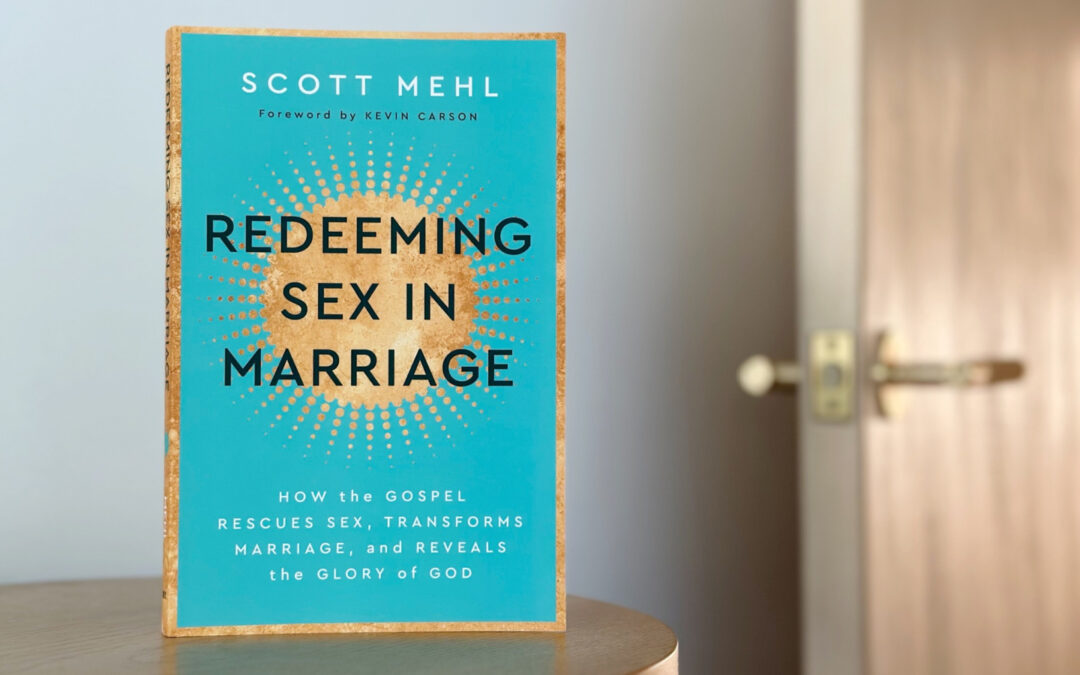“There’s a lot of talk about how to lament these days, but what do we do after—what comes next?”
My friend’s question was intriguing. He was right to identify the need for extended reflection. After all, the moments following lament are just as important as the pain-pressed prayers themselves. We must choose to do something next, so what will it be? Withdraw in self-pity? Lash out at loved ones? Self-medicate with creature comforts? Give ourselves over to the futility of restlessness or the fruitlessness of resignation? We need wisdom, lest the choices we make do more harm than good.
Because all of life is lived before God, how we move forward from lament truly matters. So what wisdom does he offer to us in these fragile and frustrated moments? Reflecting more deeply on my friend’s question, I recalled how God has led me through past post-prayer tension. His instructions have always been simple and humbling to heed in my pain. Still to this day, when my troubles lead me to take refuge in God through lament, the Spirit uses the same three pieces of wisdom to guide my next steps. When I can’t resolve my complaint, I can still aim to please God with my post-lament choices (2 Cor. 5:9).
By his Spirit and Word, so can you.
Shift from Wrestling to Waiting
Biblical lament can feel like spiritual wrestling. You’re grappling with distressing emotions and thoughts in response to your circumstances. You’re wondering where God is and why he doesn’t seem to be helping. You’re pleading for him to act and fighting to say, “Lord, your will be done.” Above all, you’re simply trying to trust. God has a good plan for your life though it hurts so bad in the moment (Jer. 29:11).
While problem solving is neither the purpose nor the goal of these kinds of groans, they are an important element of growing up in Christlikeness. Wrestling for belief in God’s goodness through lament is the stuff that deeper faith is made of. But what about in the minutes after we utter, “Amen?” I’ve found it difficult to move forward when I let myself slip back into wrestling-mode—it’s all too easy for my grappling to turn into grumbling mere moments later! To combat this temptation, the Spirit reminds me to, “stop fighting” with God (Ps. 46:10 CSB) and start waiting “patiently for him” (Ps. 37:7) instead.
“I waited patiently for the LORD; he inclined to me and heard my cry.”
(Psalm 40:1)
After lament, you can shift: I will wait patiently for God—he has a good plan for this hard situation. Redirect your immediate attention away from your complaint by focusing on the next God-honoring (read: evil-forsaking) step in front of you. And when your mind wanders back to your complaint—as mine so often does!—remember that Christ comforts the humble in spirit, not the hostile in heart (Ps. 51:17, Jas. 4:6, 10).
Resolve to Wait and to Work
The call to wait on God is not an invitation to resignation. It’s not “a slow twiddling of our spiritual thumbs in the silence of life’s waiting room.”[1] Rather, it’s an exhortation to be patient in spirit and diligent in service as we trust God to act according to his word. In this way, waiting and working go hand-in-hand—we’re to “entrust [our] souls to a faithful Creator while doing good” (1 Pt. 4:19, emphasis mine).
To be sure, it may feel like shifting your focus to “doing good” after lament is counterproductive to resolving your complaint. Wouldn’t it be better for you to work on problem-solving rather than people-serving? And yet, it’s often others that the Lord brings your way after you pray—not answers. God places these people on your path (or your mind) for a reason. While you wait on his help, you can serve others according to the grace and strength given to you (Phil. 2:13).
“For we are his workmanship, created in Christ Jesus for good works, which God prepared beforehand, that we should walk in them.” (Ephesians 2:10)
Ask yourself in the wake of your groans, What good work can I walk in right now while I wait on God’s help? For me, this looks like re-entering my day with intention—looking not only to my own interests, “but also to the interests of others” (Phil. 2:4). Likewise, you can consider:
- What tasks need doing today, at work or at home?
- Who can I send an encouraging message to or pray for right now?
- Are there any needs around me that I can meet, in my community or church?
- Is there someone living under my roof who needs my loving attention?
Faithfulness after lament looks like waiting on God while you labor to love (Gal. 5:14).
Work While Watching for God
In the moments that follow your petitions, it can be tempting to feel discouraged or even hopeless. It may seem like God is working against you, or that he’s not working in your life at all. There are times when I’m tempted to feel this way after lament—tempted to “grow weary of doing good” (Gal. 6:9). But in my dismay, the Spirit encourages me to wait and work with a holy expectation, because “God is not unjust so as to overlook your work and the love that you have shown for his name in serving the saints, as you still do” (Heb. 6:10).
Sometimes your waiting and working post-lament won’t bear immediate fruit. When relief or healing seems delayed, you may fear that your labors are in vain. But just because you cannot yet perceive the promised harvest doesn’t mean one isn’t coming (Ro. 5:3-5, Jas. 1:12). Until it does, you can watch for God to meet you and sustain you through your grief.
“O my Strength, I will watch for you, for you, O God, are my fortress. My God in his steadfast love will meet me; God will let me look in triumph on my enemies.”
(Psalm 59:9-10)
After lament, you can commit: I will watch for God to meet and strengthen me in love. This is both a physical action and a spiritual attitude—a decision to look for the Lord in the Word and world around you. So as you wait and work, watch for God’s everyday care. It’s there in your food, drink, and clothing; in his Scripture, church, and Spirit; in the inherent beauty of his creation above and below. Notice it in the people who care for you, and in those you give your love to. See it in the Son who’ll “be with you always, to the end of the age'” (Matt. 28:20)—to the end of your angst (Rev. 21:3-5).
Your Next Steps Matter
Lament is not meant to be a “feel better” formula, but a faith-building language that sustains you in affliction. However, since it does not facilitate fast relief, the tension of lingering pain or heartbreak may leave you feeling anxious to do something.[2] And that something matters to God just as much as your distress (Is. 63:9). Because Jesus was crucified to redeem you—because by faith in him you now belong to him—you have the ability to “honor God in your body” (1 Cor. 6:20 NLT) through your post-lament choices. “In view of God’s mercy…this is your true and proper worship” (Ro. 12:1 NIV).
Thankfully, the Scriptures provide direction on ways you can walk by faith after you groan in faith. They remind you that God intends to make you “fruitful in this land of [your] grief” (Gen. 41:52 NLT). So in the wake of lament, wait patiently, work diligently, and watch expectantly for Jesus in his steadfast love to meet you. He will bring fruit from the seeds you sow in tears. You will reap with shouts of joy in time (Ps. 126:5-6).
[1] Megan Hill, Patience: Waiting with Hope, 63.
[2] Sentences adapted from Christine’s book, Midnight Mercies: Walking with God through Depression in Motherhood, 102.



